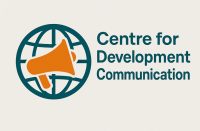In my 16 years of experience in communication, I’ve observed how many NGOs treat communication as an afterthought — or worse, as a job for just anyone.
Most still define communication narrowly: publishing activities on social media, pushing photos to newspapers, and name-dropping donors. Consequently, they routinely hire journalists as communication officers — without embedding any communication framework into their organisational strategy.
This mindset is not just flawed — it’s dangerous.
Communication is not publicity.
It is a tool for social change, policy influence, behaviour modification, and accountability. When stripped of its strategic and participatory essence, projects lose impact — and communities remain disengaged.
What’s most frustrating is how often professional advice is dismissed. Proposals to adopt more holistic approaches, like participatory communication, are ignored.
Participatory communication ensures that stakeholders are not just informed — they are involved in dialogue and decision-making. It turns “beneficiaries” into partners, and projects into platforms for real change.
Yet many NGOs — local and international — still reduce communication to PR tokenism.
It’s time to shift this orientation.
In every development intervention, communication must achieve three core things:
1. People must understand the issues
2. They must see themselves as part of the solution
3. They must be inspired and equipped to take action
If your communication isn’t achieving these, it’s noise — not impact.
I urge heads of NGOs and programme leads to stop treating communication as a checkbox activity. Engage professionals who can apply relevant communication theories and practices. Build communication into the DNA of your work — from design to implementation to evaluation.
Because in development, communication is not a job for quacks.
It’s a job for professionals who understand what is at stake.
Audu Liberty Oseni
